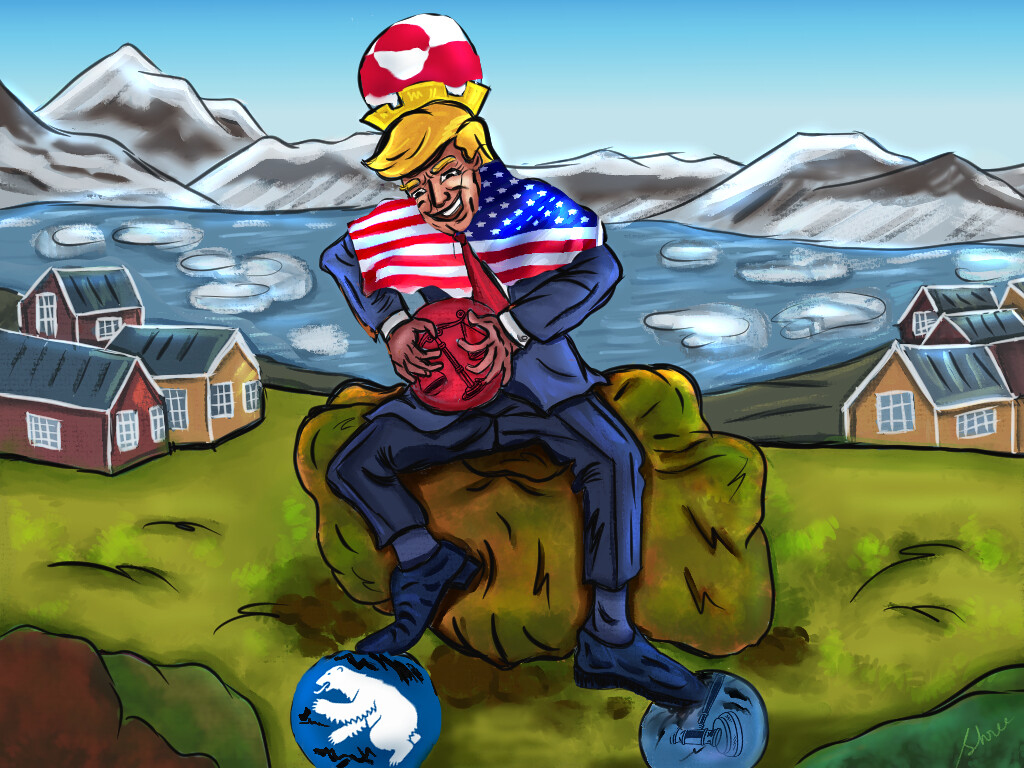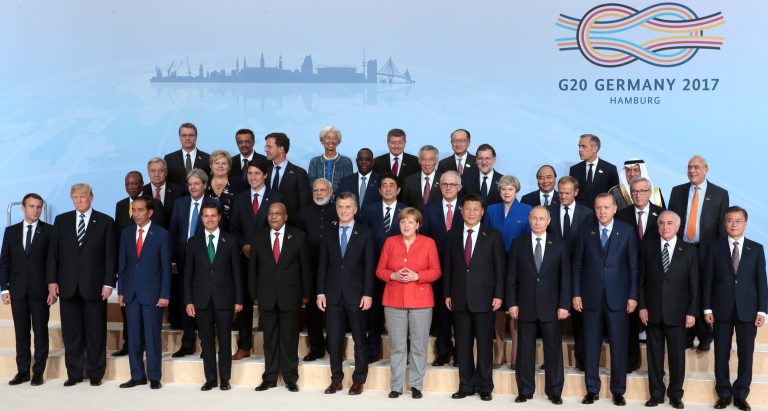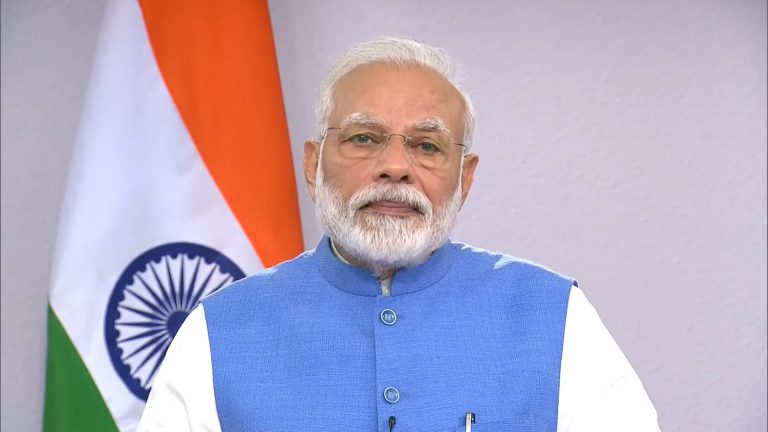Greenland should not become Trump land
Dr. Jayan is a ‘Contributing Writer’ at the journal.
‘I will have my way, no matter what the world thinks or desires’—this statement captures not only what Trump declared before the elections but also seems to reflect his approach nearly three months into office. It is ironic yet factual that the Berlin Conference of 1884–85 exposed the greed and ambition of European powers during their conquest of African territories, which later gave rise to the term and concept known as the ‘Scramble for Africa.’
Land has always been and will likely remain a major bone of contention, not just among nations but also among people, whether they belong to the wealthy elite or the impoverished classes, as history has repeatedly shown. These disputes often emerge when the pursuit of resources intersects with national interests, both before and after election campaigns in the modern era of democratic norms and constitutional frameworks, as well as in the monarchic systems of the Middle Ages.
Colonization and the racist theory of white supremacy were deeply intertwined and implemented at the ground level, fueling the rise of national freedom movements across Afro-Asian societies. These struggles led to the dismantling of colonial rule and shaped the future of national boundaries, symbolized by the emergence of independence movements in the Afro-Asian world, which saw the rise of separate flags for each country on both continents. It also led to the emergence of the Mahatma and the Madiba, Mohandas Karamchand Gandhi and Nelson Rolihlahla Mandela, respectively, who changed the destinies of millions in both continents across the Indian Ocean.
Given this historical backdrop, a pressing question arises: How does the world continue to tolerate American supremacy, both in its lingering colonial mindset and global influence, when the United States presents itself as a beacon of democracy and civil liberties? It’s a contradiction that highlights ongoing global tensions.
Interestingly, in American history, only one President has ever been elected unanimously—George Washington—underscoring a unique moment of unity that has never been replicated since. Constitutional duties and responsibilities bind a democratically elected president and not to stake control of something which is not within the vicinity of their country’s geographical limits, nor beyond it.
Let’s take a look at Greenland now. Its history, evolution, and topography are immaculate—a breathtaking creation that defies artistic description. The snow-clad mountains and white-topped expanses form a vast landmass, seemingly carved in perfection—irreplaceable and almost unimaginable in its grandeur.
Beyond this immaculate creation and breathtaking beauty lie resources hidden for ages, which are waiting to be exploited in the guise of exploration. The Greenlanders want to be left alone with their own Red and White flag and not the American or the Danish flag. The riches which lie below the vast frozen expanse of the island have been coveted and have become a subject of discussion in the corridors of power and business conglomerates. Greenland has rare earths and critical minerals, which can be utilized for green energy. It is also estimated by experts that it possesses massive amounts of oil and natural gas. The Ivittuut mines on the island supplied the critical component, cryolite, to the Allies, which was used in the manufacture of aluminum for planes. (Derouin 2025)
The island of 57,000 inhabitants has immense natural wealth and massive oil reserves. This is tempting for any state and easier for the US, whose unmatched offensive and defensive capabilities make such a pursuit far more feasible than for any other country.
If all of us believe that Trump is the only President who has ever conceded to the idea that Greenland can be annexed or possessed, we are mistaken. In 1867, the American Secretary of State, William H. Seward, had mooted the idea of taking over Greenland along with Iceland. Greenlandic and Danish governments have asserted their right to self-determination, which is evidence that they would resist any change in the present status quo. A large portion (about two-thirds) of its budget is subsidized by Denmark, while the remainder largely comes from fishing and fish exports, particularly shrimp and halibut.
For several years, the US has viewed Greenland through the lens of strategic and military importance. Between 1941-45, the US occupied Greenland to prevent a probable Hitler misadventure or a blitzkrieg. If Trump goes ahead with his plans to take over the island, the questions of sovereignty, equality, and jurisprudence will evoke memories of the pre-colonial era, rather than reflecting the principles of a post-colonial world.
While the colonial era may have ended, its legacy continues to shape the socio-political and economic realities of formerly colonized nations. However, the shift in global dynamics and the emergence of independent governance structures offer an opportunity for healing, growth, and self-determination. Today, nations are reclaiming their identities, rewriting their narratives, and forging paths rooted in justice, equality, and mutual respect—free from the shadow of imperial domination. Land filled with resources, when barren or empty from the outside, does change equations in the corridors of power as temptations fuel the lust for dominance and conquest. The allure of the world’s largest island is irresistible.
The inhabitants of a particular geographical area or region do have the right to choose and elect a form of governance of their choice. It does give certain rights to the rulers to rule under the wishes and aspirations of the ruled. The Declaration of Independence, which is regarded as the most powerful instrument of an authentic democratic character, specifies the rights and duties of an elected government.
In 2021, the Inuit Ataqatigiit party won the parliamentary elections in Greenland and came to power. The major issue revolved around the decision of the previous government to halt a rare metal mining project, which was regarded to be environmentally unsafe. Mute Bourup Egede, the PM of Greenland, had categorically stated the intention of Greenland to be free and independent.
“The Greenlandic people’s opportunity for independence has been adopted through the provisions of the Self-Government Act, thereby creating a legal basis for how independence can be achieved,” Egede said. (BBC, January 2025) This has to be respected by the international community, including the United States and Denmark.
In my conclusive analysis, I strongly opine that, in the grand chessboard of global politics and power equations, some land looks barren to the visitor and the resident but never is —it’s a silent invitation to the most powerful and arrogant, cloaked in opportunity.”
At this point, I find myself reflecting on the ageing population of my home state, Kerala, and the mass migration of its young talent to Western and Arabian shores. This silent demographic shift leaves behind a land increasingly hollowed of its vitality, much like Greenland, whose vast, resource-rich expanse, though seemingly barren, has become a magnet not just for American interest but international collaboration for vested motives. In both cases, there is an eerie vulnerability: And I fear—and believe—that even the emptiest lands echo with the footsteps of those who seek to rule them. Greenland, which was discovered by Eric the Red would love to be left alone and should be left alone with its red and white flag and not become Trump’s or Trump land.
References
- Vincent, M. (2025, January 21). The enormous challenge of mining Greenland. BBC Future. https://www.bbc.com/future/article/20250121-the-enormous-challenge-of-mining-greenland
- Murray, A. (2025, March 11). Greenland goes to the polls in a vote dominated by Trump and independence. BBC News. https://www.bbc.com/news/world-europe-18249474
- BBC Future. (2025, January 21). The enormous challenge of mining Greenland. https://www.bbc.com/future/article/20250121-the-enormous-challenge-of-mining-greenland








